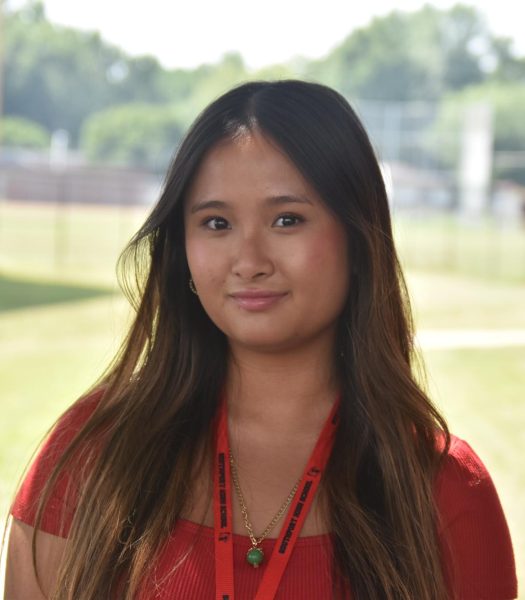The city of Cairo, Egypt, one of the biggest cities in the world, was filled with foreigners worldwide. Houses stood in close proximity from each other and kids were able to walk and bike freely, all while the Great Pyramids of Giza stood proudly on the outskirts of the city.
This is the environment art teacher Kylie Keevy lived in until she was 21. But, Keevy was seeking more than what Egypt had to offer. She noticed that among other positive factors, the U.S was more suitable for her to grow her independence.
 Despite the change of scenery, this relocation led to the creation of a third culture, which is the middle point between the two cultures. As Keevy transitioned into a new life, she had to learn how to bridge the gap between her two cultures.
Despite the change of scenery, this relocation led to the creation of a third culture, which is the middle point between the two cultures. As Keevy transitioned into a new life, she had to learn how to bridge the gap between her two cultures.
“In Egypt, it’s easy to be a school aged kid or an adult who already has a family and career,” Keevy said. “However, if you are in between those two, it is a little more difficult to be a foreigner there.”
There were many struggles Keevy faced due to this, such as being perceived as boastful, getting asked dull questions and not being able relate to others which later led to her leaving out her life in Egypt out of her conversations.
“I found that I started to stop speaking about my life because it was just so different and abstract to American kids that I did

n’t want to keep having to explain myself,” Keevy said. “So I just started to exclude it from my conversations with Americans.”
Juleen Keevy, her mother, has also noticed an immense difference between the two places. One example being safety, she chose to raise her kids in Egypt instead of the U.S.“I don’t worry about people shooting other people, that’s the biggest reason I raised my kids in Egypt. I didn’t have to worry about people intentionally hurting my children,” Juleen said.While both places offer an abundance of fun activities, their cultures differ significantly.
One contrast Keevy noticed between the U.S. and Egypt was the value placed on experiences over materialistic things. Without the presence of a new phone or a new car, she found satisfaction out of experiences instead.
“Happiness, a lot of the time in the States, is from things, not relationships or experience,“ Keevy said.
From her mother’s perspective,

there is also another aspect called “hidden immigrant,” where a person’s views of the world and their experiences look nothing like what they would know from an outside view. “The way we’re defined is, for example, a third culture kid comes back to the U.S., you look American, you sound American, but your insides, the way you see the world and your experiences and background are still Egyptian or South African,” Keevy said.
For Keevy, this meant feeling disconnected with both her American and Egyptian peers. She was never “American” nor “Egyptian” enough.
Despite all the challenges, Keevy believes that the challenges they may face can ultimately help them develop resilience and empathy for others. “In your strengths (and) in your
struggles, you will find strengths that will help you in your future,” Keevy said.



